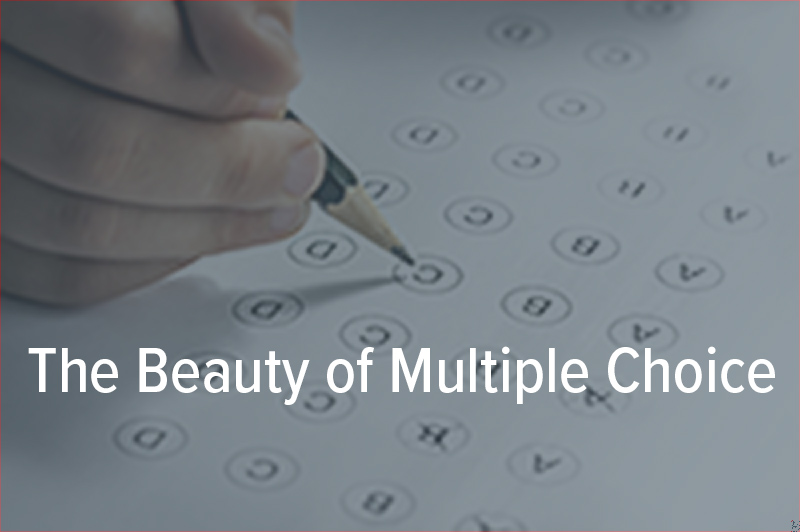
It’s now well understood that self-testing is perhaps the world’s most powerful trigger for turning on the mental mechanisms that create long term memory and the ability to recall something in the future. Memory storage, like most brain processes, is a pattern of neurons connected at their synapses by electrochemical processes. Retrieving a memory through self-testing strengthens that pattern better than any other technique.
Urban myth would have us believe that multiple choice tests are mostly good for quick grading. But in 2009, researchers proved this myth about multiple choice was wrong. It turns out that…
- Multiple choice tests increase the retention and recall of information.
- They are better than recall tests or essay questions or extra study for building durable memory.
- They do not promote the mental phenomenon of “retrieval induced forgetting.”
Multiple choice is not merely the recognition of a correct answer. It can more accurately be described as recognition combined with recall because the alternative answers must each be contemplated in turn and then selected as right or rejected as wrong. Multiple choice retrieval unleashes powerful effects that increase both retrieval strength and storage strength of the correct answer plus the alternatives. It’s a virtuous circle of memory fortification.

Solving the Problem of Retrieval Induced Forgetting
Research has shown that multiple choice solves a serious problem with other kinds of testing—the problem of retrieval induced forgetting which occurs when the brain is asked to retrieve a memory. For example, I ask you to name the fourth planet from the sun. If you recall that it’s Mars, then the memory of Mars is strengthened as we would imagine, but related memories become weaker—the positions of Jupiter and Venus are suppressed. This is something we would not have imagined until it was shown experimentally.
Think of it this way. The memory of new learning is in a kind of competition with the memory of related, but older learning. To avoid confusion and to help make rapid decisions, animals and people need to instantly know which memory is most up to date. To accomplish this, a mental system evolved to suppresses the strength of older, related information that may compete with the more recent and likely more relevant information. New information causes old information to be forgotten.
“ The results imply that taking a multiple-choice test not only improves one’s ability to recall that information, but also improves one’s ability to recall related information.” — Little & Bjork, UCLA
UCLA
Enhancing the Memory of Related Information
Multiple-choice tests do not damage access to related information. Just the opposite, they enhance the retrieval strength of related information. In multiple-choice tests, a learner’s brain is asked to compare and contrast the truth of the competing alternatives. This strengthens the memory trace of those alternatives—quite the opposite of what occurs in the brain during a recall test, where forgetting of the alternatives is encouraged by the suppression of related memory.
Multiple Choice Plus Confidence in Amplifire
Confidence appraisals magnify the superior effects of multiple-choice testing. Thinking about one’s confidence focuses the brain’s resources and attention through activated dopamine circuits. The spotlight of consciousness is brought to bear on the question at hand. With confidence focusing attention on the plausible alternatives of a well constructed multiple-choice question, learning and memory benefit greatly. Students who use Amplifire report that their attention is focused, that learning occurs more rapidly, and that future recall is easier.







